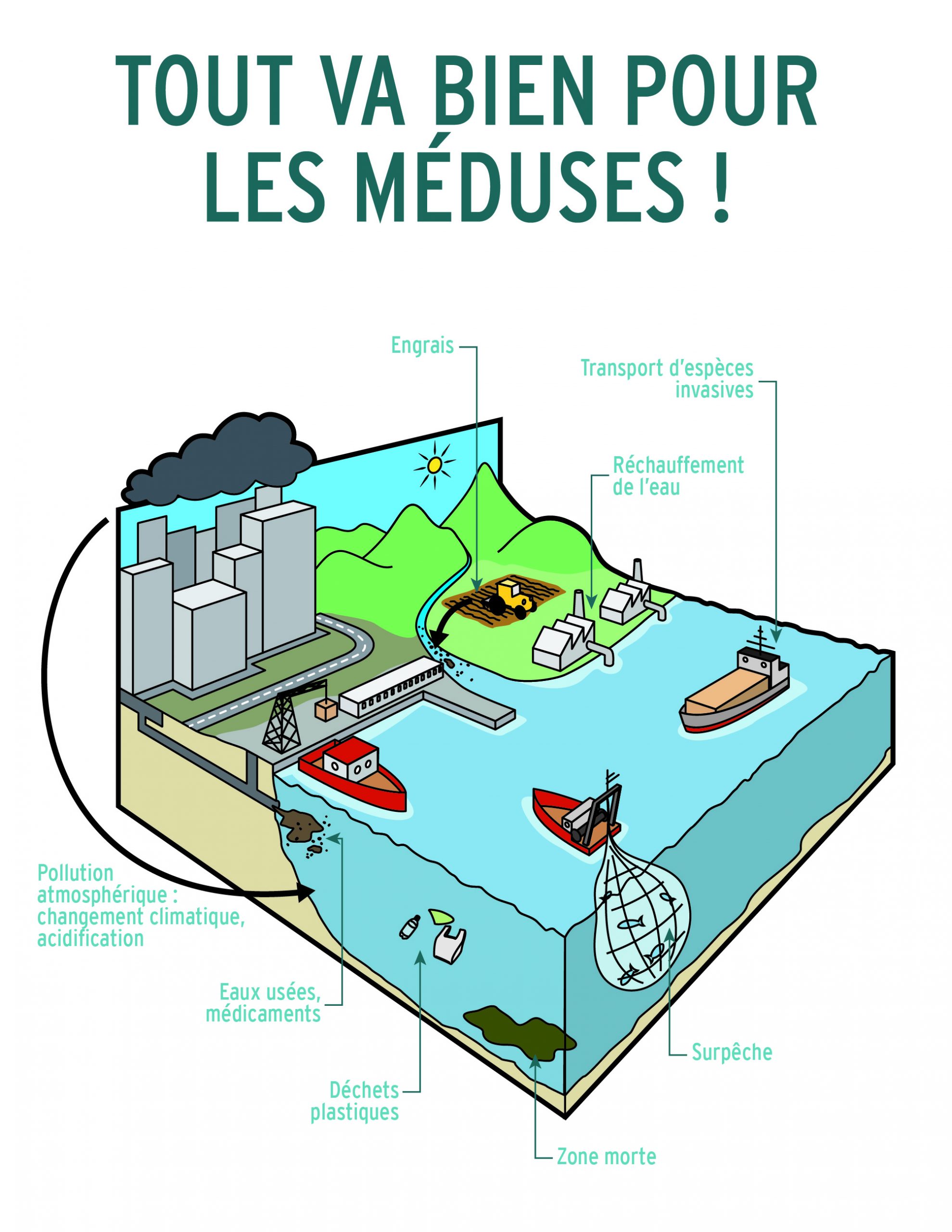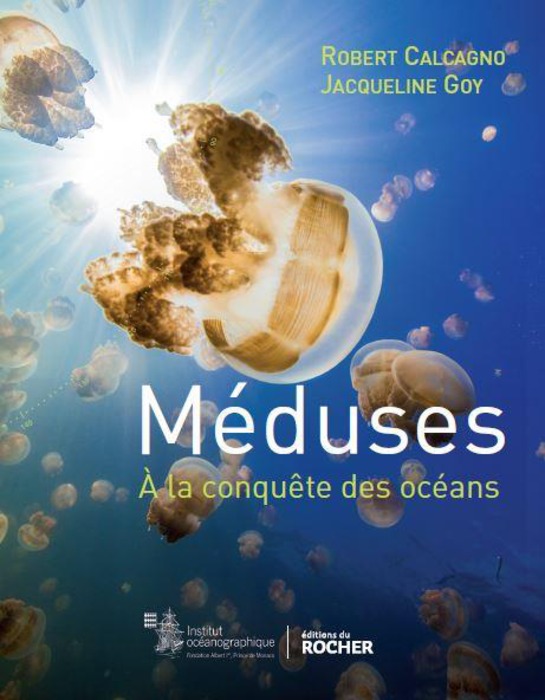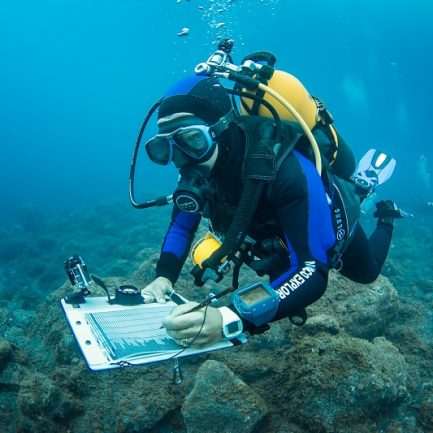Jellyfish: the conquest of the oceans
- Home
- Actualités
- Jellyfish: conquering the oceans
Jellyfish, conquering the oceans
Jacqueline Goy, an oceanographer-biologist specializing in the study of jellyfish, and Robert Calcagno, director of the Oceanographic Institute of Monaco, co-authored the book “Jellyfish, conquering the oceans” published in 2014. Well-documented and extensively illustrated, this book helps us to learn more about these organisms, which are both feared and fascinating, and to understand how climate change is encouraging their expansion.
Knowledge of jellyfish has fortunately advanced recently, but my concern regarding the exhaustion of the oceans has too. It is a certainty that jellyfish appear to be the only species that prosper throughout the ocean and that benefit from all our excesses. [...] They are clearly showing us a road we do not want to take, but that we are drawn into following by our short-term appetites. Up until now we have associated the sea with freedom and just letting things happen. We have become as complacent with the oceans as we have with our environment in general.
Extrait de la Préface de S.A.S. le Prince Albert II de Monaco
What if the oceans were “gelling"?
Jellyfish are thriving. Graceful and fragile in appearance, they adapt to marine pollution, take advantage of the excesses of fishing and gradually conquer our seas. Is ocean gelling inevitable? How far will the jellyfish go?
Through the book-documentary “Jellyfish: conquering the oceans”, the Oceanographic Institute puts into perspective the degradation of ocean health and the outbreak of jellyfish. A reminder of the risks of reckless overexploitation of the marine environment.
Jellyfish, sentinels, alert us to the quality of the water. This book questions the relationship between man and the sea, the natural environment and the fragile balance that it is vital to preserve.


Do jellyfish have unthought-of powers?
The apparent fragility of these organisms hides a formidable efficiency. Primitive in appearance, they let themselves be carried by the currents and in fact go to the essential: feeding and reproduction. However, their efficiency and robustness are exceptional.
Their life cycle is astonishing, between dormancy and massive reproduction, even rejuvenating when the need arises. Jellyfish hold the key to immortality. They also have an exceptional capacity to adapt. They have adapted to all oceans, including fresh water.
Today, they are resisting our excesses, when we pollute the oceans with our nitrates, our medicines or our plastic waste. After having taken advantage of the boom in maritime transport to conquer new spaces, they are only waiting for climate change to launch their next offensive.
Man and jellyfish: friends or enemies?
Jellyfish can cause even paralysis of our activities. On European beaches, jellyfish are the nightmare of holidaymakers. On the other side of the world, their bites can be deadly. And they also attack fishing, aquaculture and even nuclear power plants, which they choke!
However, man is the main ally of jellyfish: overfishing rids them of their predators and competitors; various types of pollution feed them or further strengthen their robustness. By offering them the oceans, they allow them to enjoy a new golden age.


Learning about jellyfish at the Oceanographic Institute
Despite their simplicity, jellyfish can also be of some service to us and have already won two Nobel prizes. Perhaps one day they will share the secret of immortality? Science is going after their secrets.
Jellyfish are thus at the heart of a comprehensive programme run by the Oceanographic Institute of Monaco. The aquariums of the Oceanographic Museum offer a real encounter with jellyfish (aurelias, cassiopaea…).
In addition, conferences and temporary exhibitions were organized in 2014 on the theme
“The new lords of the oceans: sharks or jellyfish?”
In addition, conferences and temporary exhibitions were organized in 2014 on the theme of “The new lords of the oceans: sharks or jellyfish?”, both at the Maison des océans in Paris and at the Oceanographic Museum in Monaco.
The book “Jellyfish: conquering the oceans” is a further development of this programme. It is published by Éditions du Rocher and is available for 19,90€.









